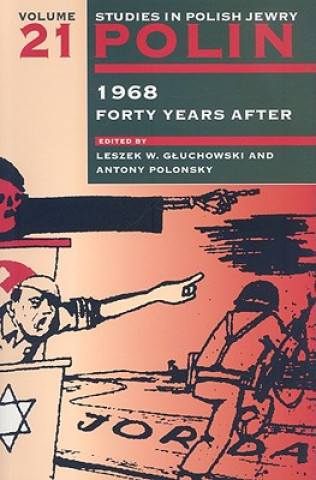
Kód: 05023292
Polin: Studies in Polish Jewry Volume 21
In the mid-1960s, public opinion in Poland turned against the Gomulka regime for a variety of reasons. In an attempt to regain public support and divert attention from the real problems, Gomulka adopted an antisemitic stance. On 1 ... celý popis
- Jazyk:
 Angličtina
Angličtina - Väzba: Brožovaná
- Počet strán: 550
Nakladateľ: Liverpool University Press, 2008
- Viac informácií o knihe

37.90 €
Bežne: 42.12 €
Ušetríte 4.22 €

Skladom u dodávateľa
Odosielame za 14 - 18 dní
Mohlo by sa vám tiež páčiť
-

Transcendental Heidegger
153.74 € -
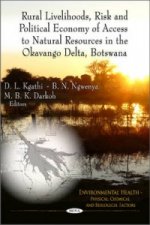
Rural Livelihoods, Risk & Political Economy of Access to Natural Resources in the Okavango Delta, Botswana
354.85 € -12 % -

Recognizing the Romantic Novel
52.48 € -

Woman's Book of Yoga
24.83 € -
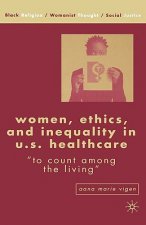
Women, Ethics, and Inequality in U.S. Healthcare
68.77 € -

Reading After Theory
59.62 € -

Riddling Thing
160.18 €
Darujte túto knihu ešte dnes
- Objednajte knihu a vyberte Zaslať ako darček.
- Obratom obdržíte darovací poukaz na knihu, ktorý môžete ihneď odovzdať obdarovanému.
- Knihu zašleme na adresu obdarovaného, o nič sa nestaráte.
Viac informácií o knihe Polin: Studies in Polish Jewry Volume 21
Nákupom získate 95 bodov
 Anotácia knihy
Anotácia knihy
In the mid-1960s, public opinion in Poland turned against the Gomulka regime for a variety of reasons. In an attempt to regain public support and divert attention from the real problems, Gomulka adopted an antisemitic stance. On 19 March 1968 he delivered a speech to party activists in which he divided Jews into three categories: 'patriotic Jews', 'Zionists', and those who were neither Jews nor Poles but 'cosmopolitans', who should 'avoid those fields of work where the affirmation of nationality is indispensable'. In consequence, nearly 15,000 Jews--a very large part of Poland's Jewish community--left for Israel, western Europe, and North America, effectively ending Jewish life in the country for over a decade. The events of 1968 were long ignored by scholars but in recent years their importance in the process which led to the collapse of communism has become increasingly evident. This volume illuminates the events that triggered the crisis, the crisis itself, and its consequences. Different aspects of this are examined by Dariusz Stola, Jerzy Eisler, and Wlodzimierz Rozenbaum, while the role of the the Polish Military Intelligence Service during 1945-1961 in precipitating the crisis is analyzed by Leszek Gluchowski. Several contributors consider the background to the crisis in terms of the concerns of the Jewish community. Audrey Kichelewski describes developments in the community between the consolidation of Gomulka's power in 1957 and the outbreak of the Six Day War. Malgorzata Melchior examines how Jews who had survived in Poland during the Second World War responded to the crisis. Joanna Wiszniewicz provides a group portrait of pupils of Jewish origin in Warsaw schools in the 1960s, a milieu from which important elements in the student opposition were drawn. Karen Auerbach sharpens the focus in her consideration of the situation of Yiddish writer Naftali Herts Kon, while Holly Levitsky describes the travails of the Jewish communist writer Sara Nomberg-Przytyk. The book also reprints the testimonies of several people who lived through these painful events: Jerzy Jedlicki, Henryk Dasko, and Miroslaw Sawicki. Bozena Szaynok analyses the rhetoric of the period and examines the role of 'Israel' in the crisis. The controversies which it still arouses are reflected in the exchange between generals Pioro and Jaruzelski concerning the impact of the purge of Jewish officers from the Polish People's Army and in the responses to the publication by Piotr Gontarczyk of a report on the role of Jacek Kuron in 1968. As in previous volumes of Polin, in the section 'New Views' substantial space is also given to new research into a variety of topics in Polish-Jewish studies. These include a study by Kalman Weiser of the Yiddishist Ideology of Noah Prylucki; an reassessment by Julian Bussgang of the role of Metropolitan Sheptytsky during the Holocaust; an account by Michael Beizer and Israel Bartal of the tragic career of Moses Schorr; an evaluation by Krzysztof Czyzewski of the work of the Polish poet Jerzy Ficowski; and a description of the reception in Poland of Art Spiegelman's Maus. CONTRIBUTORS Karen Auerbach, Israel Bartal, Michael Beizer, Teresa Bogucka, Julian Bussgang, Wojciech Czuchnowski, Krzysztof Czyzewski, Henryk Dasko, Jerzy Eisler, Leszek W. Gluchowski, Piotr Gontarczyk, Anna Jarmusiewicz, Wojciech Jaruszelski, Jerzy Jedlicki, Audrey Kichelewski, Holli Levitsky, Krzysztof Link-Lenczowski, Tomasz Lysak, Jacek Maj, Malgorzata Melchior, Joanna B. Michlic, Karol Modzelewski, Tadeusz Pioro, Wlodzimierz Rozenbaum, Maciej Rybinski, Dariusz Stola, Bozena Szaynok, Kalman Weiser, Joanna Wisniewicz, Tadeusz Witkowski, Piotr Wrobel, Rafal Ziemiewicz
 Parametre knihy
Parametre knihy
Zaradenie knihy Knihy po anglicky Society & social sciences Society & culture: general Social groups
37.90 €
- Celý názov: Polin: Studies in Polish Jewry Volume 21
- Jazyk:
 Angličtina
Angličtina - Väzba: Brožovaná
- Počet strán: 550
- EAN: 9781904113362
- ISBN: 1904113362
- ID: 05023292
- Nakladateľ: Liverpool University Press
- Hmotnosť: 885 g
- Rozmery: 235 × 155 × 41 mm
- Dátum vydania: 01. November 2008
Obľúbené z iného súdka
-

Women Who Run with the Wolves
9.95 € -10 % -

Freedom Writers Diary
15.37 € -10 % -

Think Like a Monk
14.17 € -10 % -

Orientalism
11.45 € -19 % -
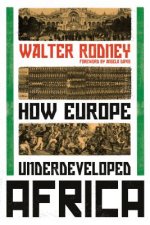
How Europe Underdeveloped Africa
22.82 € -

Desert Flower
10.95 € -23 % -
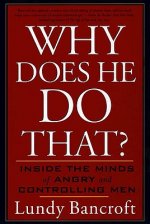
Why Does He Do That?
16.38 € -14 % -

Letters to a Young Muslim
12.06 € -23 % -
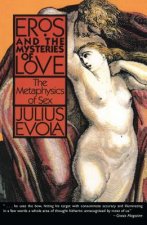
Eros and Mysteries of Love
17.99 € -13 % -

Life After Darkness
22.51 € -19 % -

Puer Tea
44.64 € -
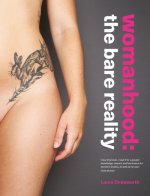
Womanhood
21.61 € -23 % -

JFK - 9/11
33.37 € -

Complete Book of Pilates for Men
18.39 € -23 % -

Colloquial Yiddish
66.86 € -

Gypsy Identities 1500-2000
68.87 € -

Sword of No-sword
29.05 € -6 % -

Servitors of Empire
20.81 € -
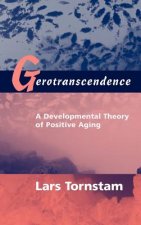
Gerotranscendence
145.19 € -

Northwest Coast Indian Art
30.46 € -18 % -

Qur'an
32.27 € -23 % -
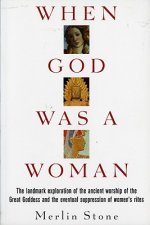
When God Was A Woman
19.60 € -1 % -

The Mastery of Love
12.76 € -15 % -

Vintage Menswear
19 € -

Who Cooked the Last Supper?
19.80 € -5 % -

Women Who Run With The Wolves
15.27 € -20 % -
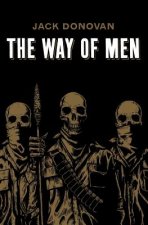
The Way of Men
14.47 € -14 % -

The Autobiography of Malcolm X
10.55 € -5 % -

Second Sex
14.57 € -8 % -

Goddesses in Everywoman
12.06 € -23 % -

Talking with Female Serial Killers - A chilling study of the most evil women in the world
10.95 € -23 % -

Intellectuals and Society
23.52 € -15 % -
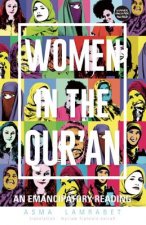
Women in the Qur'an
20.10 € -

Erotic Bondage Book
15.17 € -15 % -
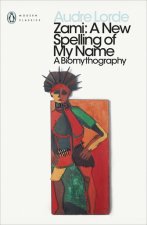
Zami
10.25 € -19 % -

Nine Years among the Indians, 1870-1879
29.96 € -
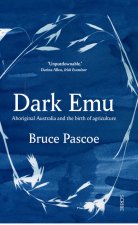
Dark Emu
16.28 € -23 % -
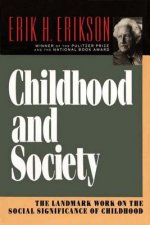
Childhood and Society
16.88 € -15 % -

Happy City
12.06 € -22 % -
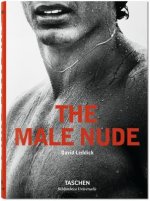
The Male Nude
18.89 € -5 % -

The Bell Curve
18.39 € -23 % -
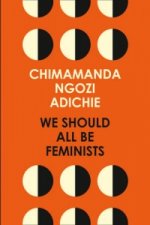
We Should All Be Feminists
7.83 € -22 % -

Empire of the Summer Moon
14.17 € -23 % -
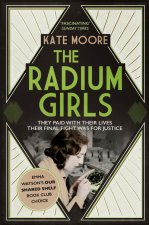
Radium Girls
10.95 € -23 % -

Dance of Anger
10.95 € -23 % -
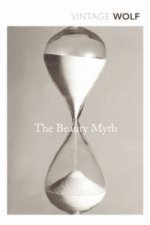
Beauty Myth
14.17 € -23 % -

Muqaddimah
21.81 € -15 % -

TROUBLEMAKER
16.08 € -14 % -
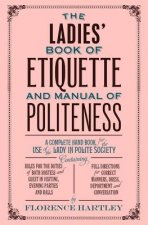
Ladies' Book of Etiquette and Manual of Politeness
13.56 € -15 %
Osobný odber Bratislava a 2642 dalších
Copyright ©2008-24 najlacnejsie-knihy.sk Všetky práva vyhradenéSúkromieCookies


 21 miliónov titulov
21 miliónov titulov Vrátenie do mesiaca
Vrátenie do mesiaca 02/210 210 99 (8-15.30h)
02/210 210 99 (8-15.30h)